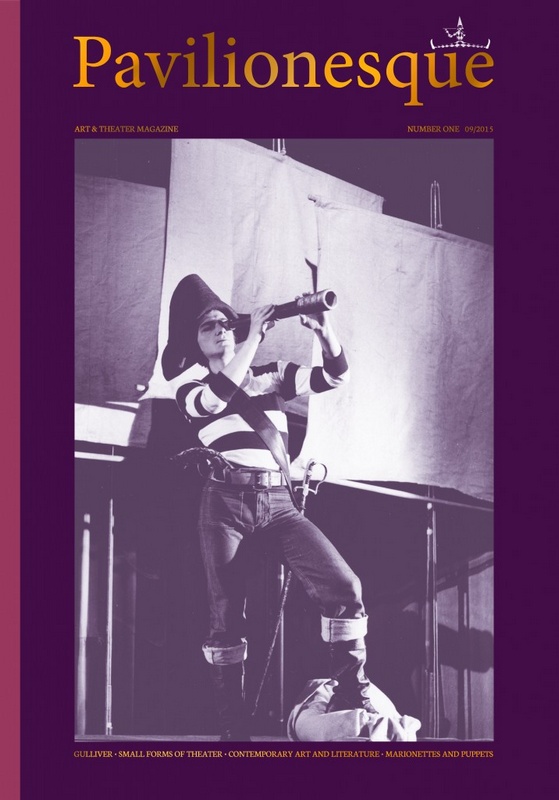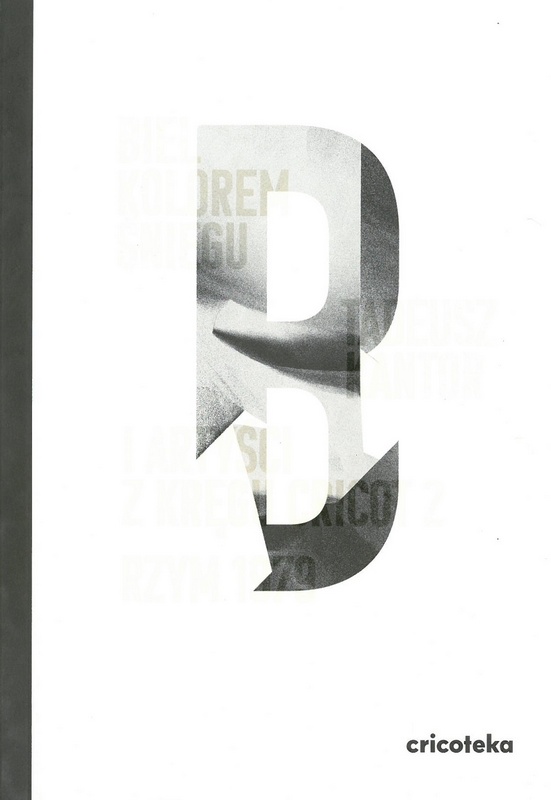A puppet theater tends to be miniature by definition. The puppets are usually the size of dolls, small objects that can be kept in drawers, fetishes, lucky charms, voodoo dolls, and talismans. Their size means that you would lose them if you did not keep them safe in a box on the shelf. Frances Glessner Lee excelled in miniatures; she was a pioneer of forensic medicine who created eighteen dioramas reproducing brutal murders. Of course, not all puppets are miniatures of people and animals. In the Bread and Puppet Theater there appear gigantic puppets. Giants also appear in the work of the Japanese artist Yotsuya Simon. In the productions of the Polish theatrical director Tadeusz Kantor, mannequins on a “human scale”—life-size and cumbersomely attached to the bodies of the actors—symbolize the spirits of the departed and those remembered from childhood. The face of a puppet is spellbinding, with its wide-open eyes, prominent cheekbones, and slightly parted lips. Sometimes it looks like a figurine assembled from remnants that don’t go together; neither old nor a child. The wild character of the puppet, its playful inclination, a tendency to joke and tell made-up stories puts us in touch with our carefree childhood, in which we can remember playing with homemade puppets. One of the most colorful hildhood heroes is Lemuel Gulliver, a mysterious traveler imprisoned by the Lilliputians, who visits the land of the giants and a kingdom reigned over by horses. Jonathan Swift’s Travels into Several Remote Nations of the World. In Four Parts. By Lemuel Gulliver, First a Surgeon, and then a Captain of Several Ships, commonly known as Gulliver’s Travels, first published in 1726, continues to stimulate political imagination and poses fundamental questions about human anatomy.
The magazine Pavilionesque would like to take you, Dear Reader, on an incredible journey through the world of the theater and art. In creating our magazine we also intend to discuss small theaters that draw remarkable people to them such places exist in almost every little town, scattered like some distant, small islands of an obscure archipelago.
Puppets are not what they seem at first glance!
Introduction by Joanna Zielińska and Paulina Ołowska
Pavilionesque No. 1
Art Director: Paulina Olowska Editors: Anna Czaban, Joanna Zielinska Authors: Evgeny Anufiev, Peter Błachut, Bread and Puppet Theater, Anna Bujnowska, Paul Dudziak, Paul Elliman, Bruno Fernandes, Henryk Jurkowski, Tadeusz Kantor, Jerzy Kolecki, Eustachy Kossakowski, Eve Kuryluk, Jacek Marcinkowski, Steven Millhauser, New Theater, Paulina Ołowska, Barry Redzisz, Mathilde Rosier, Zofia Rydet, Yotsuya Simon Theatre Gulliver, TJ Wilcox, Richard Wilson, Kiki Uhart, Joanna Zielinska
Design: Alicja Pismenko, Paulina Olowska Coordination: Magdalena Strzelczak
Number of copies: 1000
Printing: Argraf
ISBN 978-83-61213-53-6
Publisher: Cricoteka & Mundin



